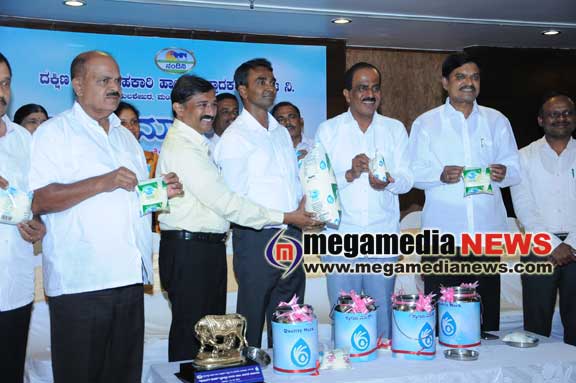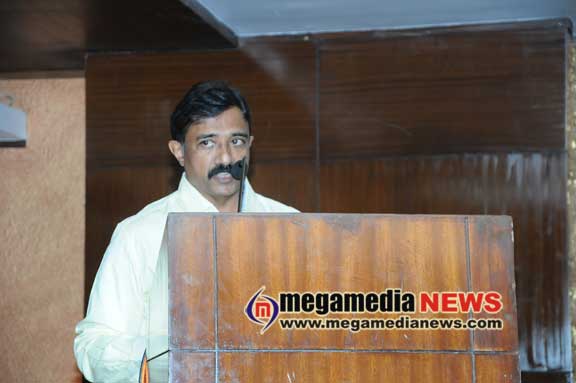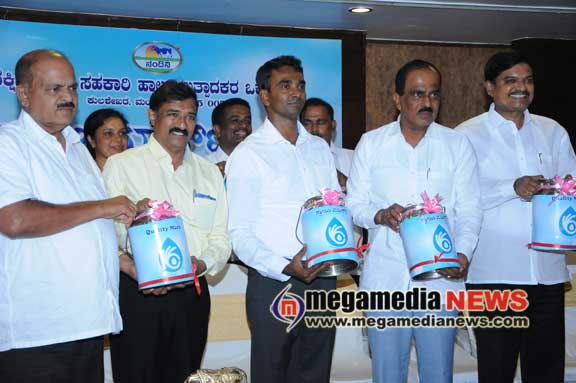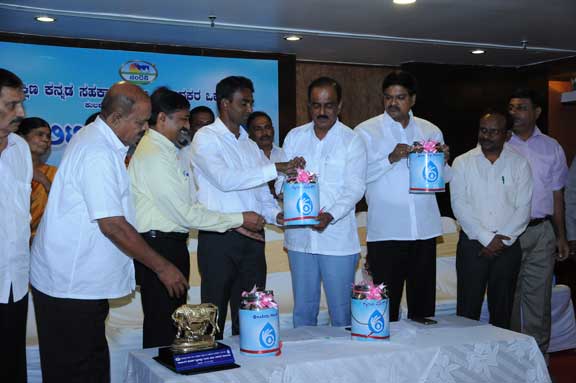Nandini Milk released with Quality Mark Logo
9:23 AM, Thursday, October 12th, 2017 Mangaluru: The two dairies of Dakshina Kannada Cooperative Milk Producers’ Union Ltd – at Kulshekar and Manipal on Wednesday received the coveted ‘Quality Mark’ issued by National Dairy Development Board (NDDB). These dairies are among the 11 dairies under Karnataka Milk Federaion and 21 across India to do so. In fact out of 220 milk dairies across India under 170 milk unions, only 60 had applied for the Quality Mark and 21 of them were considered.
Mangaluru: The two dairies of Dakshina Kannada Cooperative Milk Producers’ Union Ltd – at Kulshekar and Manipal on Wednesday received the coveted ‘Quality Mark’ issued by National Dairy Development Board (NDDB). These dairies are among the 11 dairies under Karnataka Milk Federaion and 21 across India to do so. In fact out of 220 milk dairies across India under 170 milk unions, only 60 had applied for the Quality Mark and 21 of them were considered.
Launching the milk products manufactured in these two dairies of DKMUL, K G Jagadeesha, DC said the commendable work done by cooperative milk sector has ensured that both farmers and the consumers were assured of market for their produce and quality product at their doorstep. Noting that these quality products are being delivered at a reasonable rate, Jagadeesha said the white revolution has empowered the farmers and rooted out the middlemen.
 Other spin off from the white revolution, which Karnataka has adopted successfully after Gujarat, DC said is the fact that it has helped address the problem of malnutrition. The decision by the state government to provide milk to students of primary schools and anganwadis using the bulk milk powder lying with KMF has addressed issue if malnutrition among children. In DK district, cases of malnutrition has now dipped below 100 from nearly 2000 children, he said.
Other spin off from the white revolution, which Karnataka has adopted successfully after Gujarat, DC said is the fact that it has helped address the problem of malnutrition. The decision by the state government to provide milk to students of primary schools and anganwadis using the bulk milk powder lying with KMF has addressed issue if malnutrition among children. In DK district, cases of malnutrition has now dipped below 100 from nearly 2000 children, he said.
 P Nataraj, director (quality assurance), KMF said fact that DKMUL was a frontrunner in getting the ISO: 22000 certification helped boost its cause to get the coveted Quality Mark, which reassures customer that the milk or milk products they consume is of the highest certified quality. “KMF is in the process of ensuring that the remaining 11 dairies in the 14 milk unions in the state get this Quality Mark in the next three months and efforts are on in this direction,” he said.
P Nataraj, director (quality assurance), KMF said fact that DKMUL was a frontrunner in getting the ISO: 22000 certification helped boost its cause to get the coveted Quality Mark, which reassures customer that the milk or milk products they consume is of the highest certified quality. “KMF is in the process of ensuring that the remaining 11 dairies in the 14 milk unions in the state get this Quality Mark in the next three months and efforts are on in this direction,” he said.
President of DKMUL Raviraj Hegde who received the Quality Mark logo and certification from Suresh D Jaisinghani, senior manager, NDDB said this has increased the responsibility of the union manifold times. The union has managed to pare down its milk requirements from an all-time high of 78% to 6%. “We can help dairying activity in the district if we get space in prime government offices to vend our products and look forward to administration’s help,” he noted.
Simillar Posts
Warning: count(): Parameter must be an array or an object that implements Countable in /home/megamcaq/public_html/wp-content/plugins/post-plugin-library/common_functions.php on line 357
- None Found
Leave a Reply
© Copyright 2008 www.megamedianews.com All Rights Reserved. Privacy Policy












 Posted in
Posted in  Tags:
Tags: 



